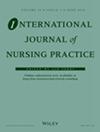Breastfeeding Self-Efficacy Among First-Time Mothers: A Mixed-Methods Study Comparing Spontaneous and Assisted Conceptions in Turkey
Abstract
Aim
This mixed-method study aimed to examine the relationship between mode of conception and breastfeeding self-efficacy among first-time mothers in Turkey, comparing outcomes between those who conceived spontaneously and those who conceived through assisted reproductive technologies (ART). A secondary objective was to explore the lived experiences of women with low breastfeeding self-efficacy in both groups.
Methods
Using an exploratory sequential mixed-methods design, quantitative data were collected from 100 mothers, 50 with spontaneous pregnancies and 50 with ART-conceived pregnancies, using a validated breastfeeding self-efficacy scale. In the qualitative phase, in-depth interviews were conducted with six mothers who scored low on the scale or reported breastfeeding difficulties. The qualitative component was guided by Dennis' Breastfeeding Self-Efficacy Framework.
Results
Quantitative findings revealed significantly higher breastfeeding self-efficacy scores among mothers with spontaneous pregnancies compared to those who conceived through ART. Qualitative analysis identified key influencing factors such as emotional adjustment to motherhood, perceived social expectations and physical challenges related to breastfeeding. A critical gap in targeted breastfeeding education and postnatal support was noted across both groups.
Conclusions
The findings underscore the need for individualized, culturally sensitive breastfeeding interventions, particularly for mothers who have conceived through ART. Tailored support strategies addressing both psychological and physical aspects of the postpartum experience may enhance breastfeeding outcomes in this growing population.

 求助内容:
求助内容: 应助结果提醒方式:
应助结果提醒方式:


